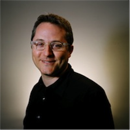Who We Are

Sam Gregory
2013 IFTF Fellow
Human Rights Advocate
Program Director, Witness
Sam Gregory helps people use the power of the moving image and participatory technologies to create human rights change. An award-winning human rights advocate, video producer, trainer, and technologist, he is Program Director at WITNESS, the leading organization supporting people to use video for human rights. His recent work—including launching the Webby-nominated Human Rights Channel on YouTube and the award-winning ObscuraCam and InformaCam tools—aims to support an ever-growing number of citizen witnesses to share documentation without compromising their own safety, make it stronger as evidence, and contextualize and amplify it so that change is secured.
In 2010 Sam was a Rockefeller Foundation Bellagio Resident on the future of video-based advocacy. In 2012 he was named a Young Global Leader of the World Economic Forum, and in 2013 his team won a Knight Foundation News Challenge for their InformaCam project.
Sam has worked extensively with human rights activists, particularly in Latin America and Asia, integrating video into campaigns. He was the lead editor on the widely used text Video for Change: A Guide for Advocacy and Activism (Pluto Press). In 2011 he was a co-editor of the WITNESS report: Cameras Everywhere: Current Challenges And Opportunities At The Intersection Of Human Rights, Video And Technology. He teaches on human rights and participatory media as an Adjunct Lecturer at the Harvard Kennedy School. A graduate of the University of Oxford, Sam completed a Masters in Public Policy as a Kennedy Memorial Scholar at Harvard. He is on the Board of the U.S. Campaign for Burma, and the Advisory Board of Games for Change.
Fellowship Project:
Explore the next steps of immersive witnessing ...
... of human rights violations and related activism, including the role of live-streaming, wearable computing, augmented reality, and “feeling is believing” approaches.
Q&A with Sam Gregory
Q: What is the most surprising story or turning point that led you to your current work and interests?
A: The experience of watching livestreams from Homs and the Occupy Movement, combined with my own experiences talking to human rights activists in places like the refugee camps on the borders of Burma or from the current Arab Spring context, has led me to reflect on the power of experiential, real-time witnessing, learning, and engagement for human rights activism. Once we can see in real-time what is happening, experience it through others' eyes, and feel it as they do, can we overcome the barriers that exist in engaging people to action?
Q: Ten years ago, where did you expect you would be now?
A: Strangely, I think I expected to be largely where I am now. I underestimated how much my work would evolve with changes in technology, and accessibility of tools to create, share, and interact with media. As someone who came into my field as a video-maker and advocate, I have had to evolve to learn about and learn from many adjacent fields, from mobile technology to Internet policy to citizen journalism.
Q: What are some of the biggest challenges that your field will face in the future?
A: The biggest challenge that my field will face in the future is the same one as in the past: How do we translate knowledge and awareness of injustice into understanding and action? And is it possible to do that in a faster, more proactive way than we have done to date, and involving more people—not just the same old power-holders?
Q: What do you wish you could "steal" from the future?
A: Confidence that decisions that we make now that we hope will help shape our future are the right ones.
Q: Which do you value most for the future: Happiness, resilience, or legacy?
Resilience.
A: What cliché of the future would you most wish to retire?
That the future is a different country (to borrow and adapt from LP Hartley's similarly time-line based “the past is a foreign country”). By this I mean, I think that we will face the same essential human dilemmas—of justice and injustice, of family and country, of faith and reason—that we have before, but just in evolving forms.



